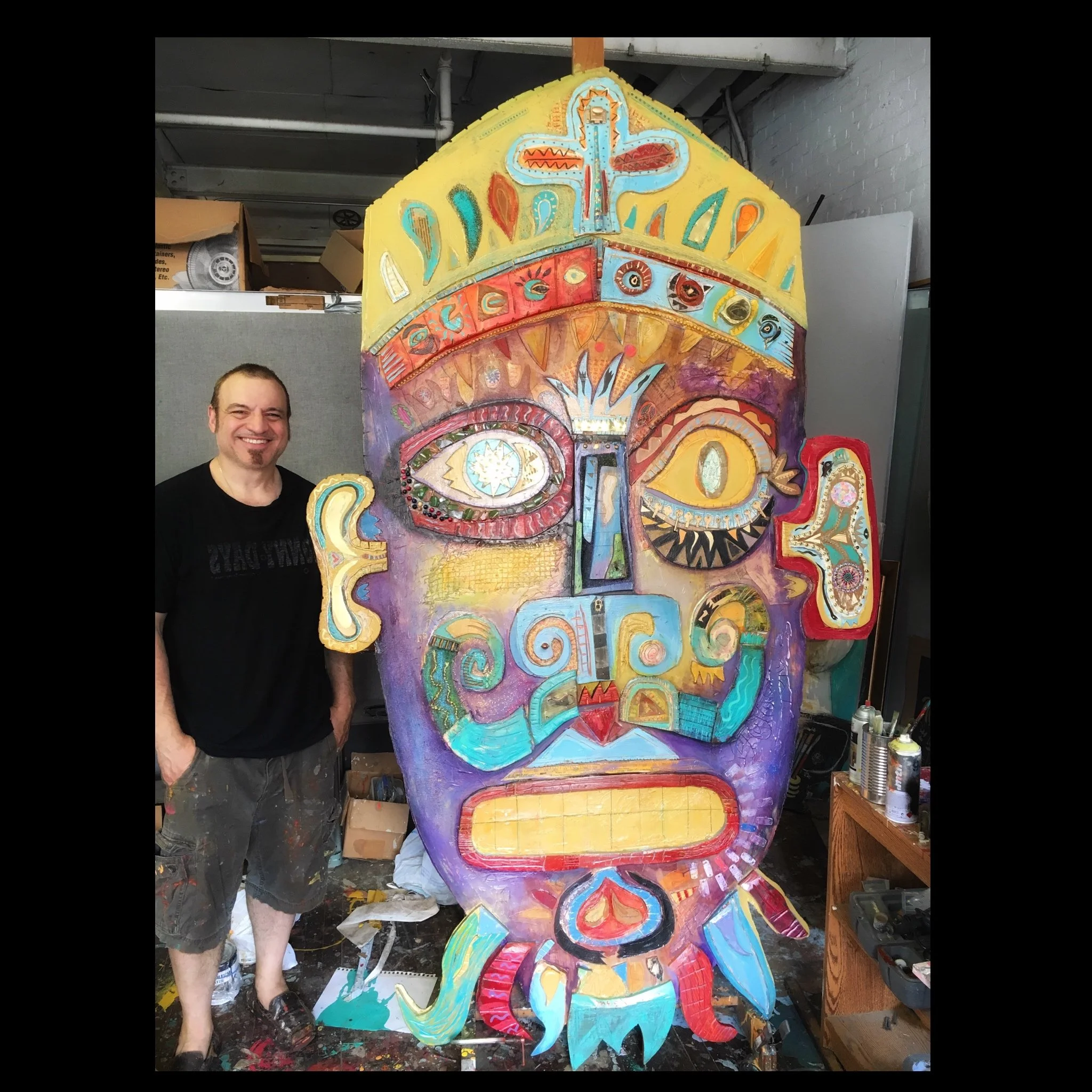Art is an investment financially and for your soul.
Art is a great investment. You may say, "well of course you say that Tom Megalis you are a professional artist." True, but what other asset brings you daily joy and pleasure while still appreciating in value? Watches? To some degree yes, but owning art is another level of joy.
Art is tangible, art is emotional, art activates a space with color, texture and ideas, art creates dialogue, art is real, art is frozen history. Art is time captured in a frame or in a sculpture. I've always loved that about art. You can sit in front of Wyeth's Christians World and literally fall into that scene and stand at the same position Andrew Wyeth stood when he painted Christina's World in 1948. Wyeth is long gone but the painting is here frozen in time.
Okay so that's blue chip art. A dead artist with limited inventory, truly an investment. But what about the working artist of today, is that an investment? If you pick an artist correctly, one that is working consistently, selling consistently, doing high quality work, being collected by many, then absolutely that work is an asset and will increase in value over the years.
Sure it may be a long game, but in the meantime you and your family and friends get to enjoy that art in your, home or business. Art is not an investment that gets locked away in a dirty dark bank. Art gives back to you each and every day.
Art is an investment financially and for your soul.
The Art of Marketing
The art of art marketing
If you are an artist who is looking to take your business from "making some cool art" to "Selling Art" you will soon be confronted with the reality that marketing is now part of your daily business, perhaps 50% of your day.
I've known many artists in my 30 plus years of making art and trust me marketing or promoting and sometimes even talking about their art is the last thing most artist want to do. They just want to make art. Sure, that's the fun part. Truth is many great artists are not performers or verbal pontificators or even small talkers. They are visual artists for reason. That is their language, the space they feel most confident inhabiting. Many like myself included are introverts. We love to be alone making art.
So what does an artist do?
Well if you can hire a small social media team or even a social media person, do that. Have them photograph your work, shoot you working and then upload and work the social media platforms like a magician. Well, most artists can't afford that extra person. They have studio rent, supplies, food and then home bills to meet. That's out.
So then what?
Accept your reality and begin to integrate daily marketing into your art making business. And you must think of your art making practice as art business. Get serious. Really serious. You are making something that you need to sell in order to keep making more or it will all fall apart.
Start slowly.
Take photos of all your art as you are doing it. Take photos of you with art. Take videos of you making art. You don't need another person to do this. Get a tripod and a selfie stick. These WIP (work in progress) or process videos are something many people love watching. If you need convinced of this and think making art is like watching paint dry (it is at times), just watch some ASMR videos on YouTube. People find the process of making art to be soothing and meditative. Remember most people don't make marks on paper or canvas or carve wood. It's a fascinating act to watch. Kind of like watching pandas eat. You don't see it everyday.
Get busy.
Begin to upload your videos and photos daily on Instagram, Youtube, Facebook and LinkedIn. You can use the same content on each one, but do it daily and consistently. Then respond to comments with your personal comments, not just a "like" or a "heart emoji". Engage with your community. Part of reason people buy art from you is because of YOU. Show your personality on your posts. Let your audience get to know you and your art, they are one and the same.
Sounds like a lot of hard work?
It is a lot of hard work. So is making good art. Together they will push your business to the next level.
Go get 'em artist!
Commission or not to commission? That is the question.
Warrior. Commission Choolaah Indian BBQ
I may be in that rare category of artist who actually loves doing commissions. Probably for the same reason many artists hate commission work. In commission work there are deadlines, creative meetings, a contract and money paid to you upfront. It's like a a real job!
I get it, some artists see those things as hindering their creativity. I hear it often, “I don't want some person giving me ideas or notes or directing what I paint or sculpt.” I hear ya art brothers and sisters. I've been an animator, a radio show host and a painter mostly because I don't want to work with people and I'm a control freak. I love drinking vast amounts of coffee and working alone with Miles Davis slinking in the background.
Maybe it's because I'm a first generation Greek, but I like getting hired to do an art job. I don't always want to rely on my own inspirations or obsessions to create paintings. I enjoy the idea of “having to hit a mark”.
To me it seems any Joe and Sally Artist can randomly do a nice piece of art. Just keep doing it and yeah, eventually something sweet will happen. It's a numbers game.
A commission is a totally different animal. A person or business wants your art. You meet with them, propose an idea or two or three or ten. There is some back and forth. You decide on a final direction and you move towards planning that piece. It's like art sharpshooting. And if I'm really honest with myself, some of my most successful pieces have been commissions. The pressure just elevates my game.
Sometimes a commission can just be more challenging. Which is why I always like to try and do something that seems really hard to achieve. A commission can pull the best out of you, make you uncomfortable, cause you some anxiety and totally remove you from your comfort zone.
Here's a thought. If you are a small scale portrait artist, take on a commission to do a mural. Hell ya you'll be scared, but something great might happen. You may grow and surprise yourself. That's exciting.
I think most of us art makers start out as children just loving to draw or paint or make things with our hands. Then somewhere along the line it hits us, “this is what I want to do for a living.” And if you work hard enough, get good enough, meet enough people who like what you do, the art slowly begins to support your life. It puts food on your table, shelter over your head. You are successful.
Don't be afraid to take on commissions. People may love what you do, but they might just want something that's a bit more custom for their home or business. Take it on, stretch and open up the highways of your art career.


